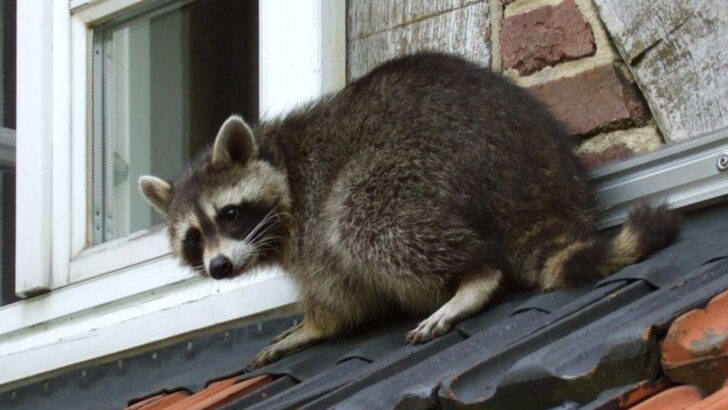A raccoon in your house might sound adorable—until it’s tearing through your walls like a furry wrecking ball.
Sure, they have cute little hands, masked faces, and a mischievous charm that makes them look like cartoon bandits. But make no mistake: raccoons are chaos incarnate. They’re strong, stubborn, and born to destroy anything they can get their paws on.
Think your couch is safe? Think again. Your cabinets? They’ll break in. Your sanity? Gone. And don’t even get me started on their bathroom habits (spoiler: they have none).
Still convinced a raccoon would make a fun pet? Before you start dreaming of your own masked mischief-maker, let’s go over 15 reasons why bringing one home is a terrible idea.
Unpredictable Behavior
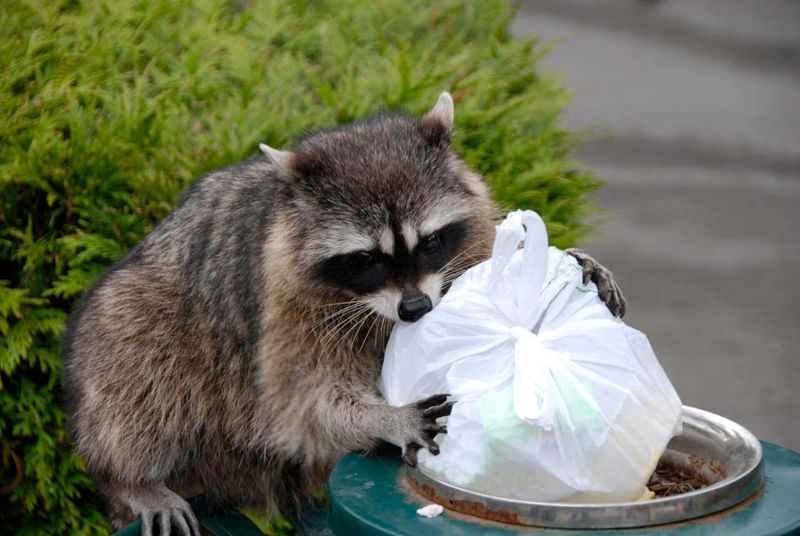
Raccoons are wild animals by nature, and even when raised in a domestic setting, their instincts remain intact. This unpredictable behavior can manifest in destructive ways, such as knocking over furniture or getting into things they shouldn’t.
They might appear calm one moment and then suddenly become aggressive or overly energetic the next. This inconsistency makes them difficult to manage in a home environment. With their sharp claws and strong teeth, they can cause significant damage, leaving homeowners frustrated and overwhelmed. Containing their wild nature can be exhausting, making raccoons unsuitable as pets.
Legal Restrictions
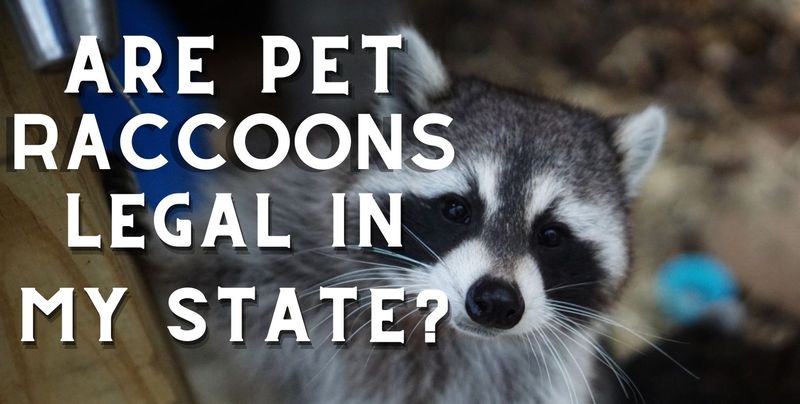
In many places, owning a raccoon as a pet is restricted or outright illegal. This is due to the potential risks they pose to both humans and other animals.
When considering a raccoon as a pet, one must navigate a complex web of legal requirements and restrictions that vary by state and country. Failure to comply with these regulations can result in fines, confiscation of the animal, or even legal action. It’s crucial to thoroughly research local laws before attempting to domesticate a raccoon, as ignorance is not an excuse in the eyes of the law.
High Maintenance
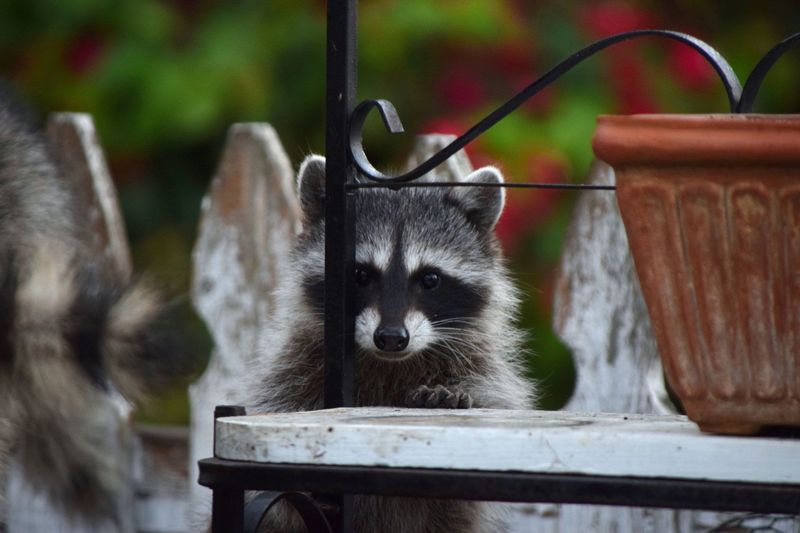
Raccoons require a lot of attention and care, much more than typical household pets. Their need for stimulation means they are constantly looking for things to do, often leading to troublesome behavior if left unsupervised.
This high maintenance aspect includes regular cleaning, as they can be messy eaters and often scatter debris everywhere. Food must be carefully chosen to meet their nutritional needs, and their living environment needs constant supervision. For busy individuals or families, meeting the high maintenance demands of a raccoon can become a burden.
Potential Health Risks
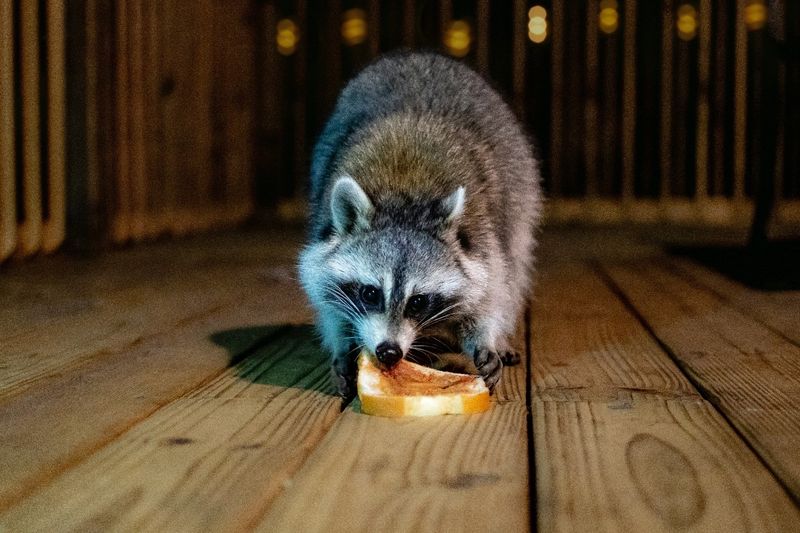
Raccoons can carry various diseases that are transmissible to humans, such as rabies and raccoon roundworm. These health risks make them a potential danger to both pet owners and their families.
Regular veterinary care is essential, but even with precautions, the risk remains. Ensuring that all vaccinations are up-to-date is vital, but some diseases may be difficult to detect until symptoms appear. It’s important to weigh these health risks carefully, especially in households with children or elderly individuals who may be more susceptible to infections.
Aggression Issues
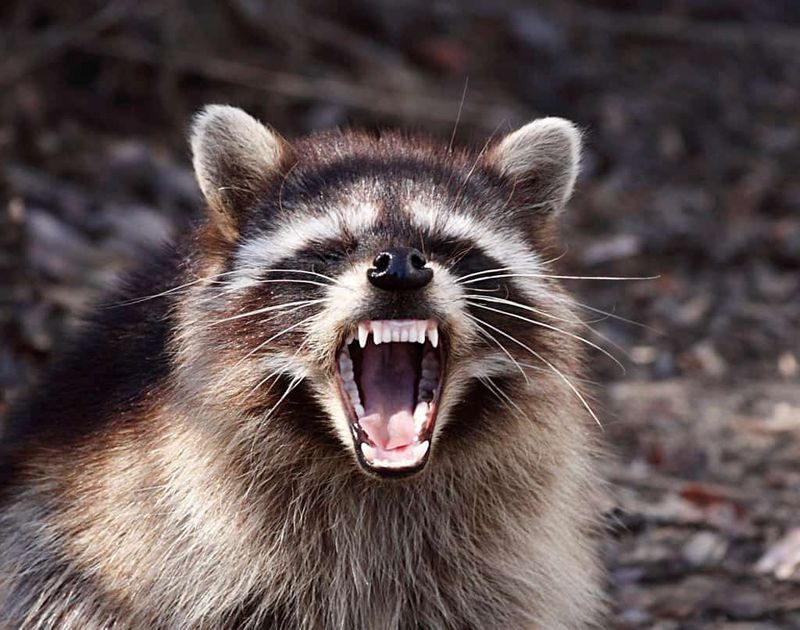
Raccoons may look adorable, but they can exhibit aggressive behavior, especially if they feel threatened or cornered. Even well-raised raccoons can have sudden outbreaks of aggression, biting or scratching unexpectedly.
This aggressive tendency is a natural survival instinct, but it poses a significant challenge for pet owners who must constantly be on guard. Such unexpected aggression can lead to injuries, requiring medical attention. It’s a stressful experience for all involved, making raccoons a risky choice for a pet, particularly for families with young children.
Dietary Challenges
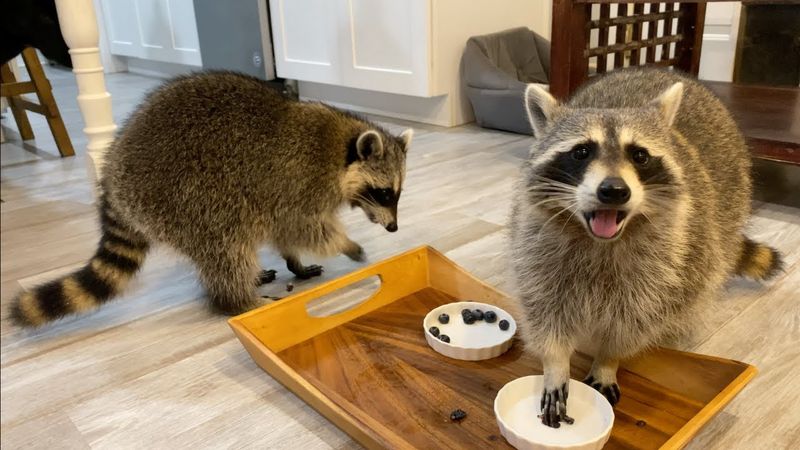
Feeding a raccoon is no small task; their diet requires careful planning and consideration. Unlike dogs or cats, raccoons have specific nutritional needs that must be met to ensure their health and well-being.
A balanced diet may include fruits, vegetables, proteins, and special supplements, and failing to provide the correct diet can lead to health issues. Moreover, raccoons are notorious for being picky eaters, sometimes refusing food they previously enjoyed. This unpredictability adds to the challenge of keeping them well-fed and healthy, making dietary management a daunting daily task.
Destructive Nature
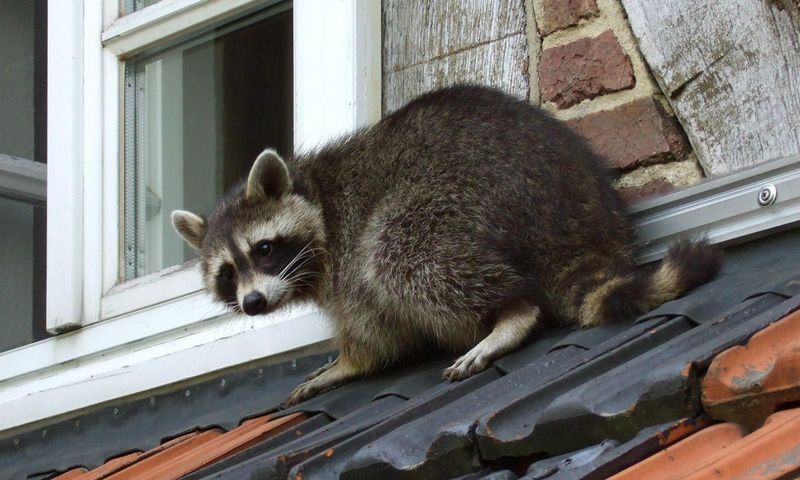
Raccoons are inherently curious and enjoy exploring their surroundings, often leading to destructive behavior. Whether it’s tearing up a couch or rummaging through trash, their need to investigate can cause havoc in a household.
This destructive nature is part of their wild instincts, driving them to dig, claw, and chew through various materials. For homeowners, this means constant repair and replacement of items damaged by their raccoon’s antics. The continuous cycle of destruction and repair can be both financially and emotionally draining, illustrating why raccoons might not be suitable pets.
Limited Veterinary Care
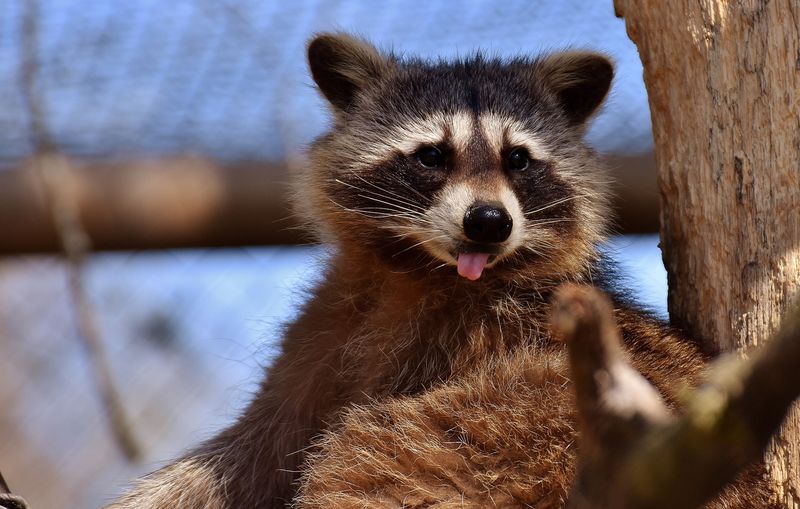
Not all veterinarians have the expertise to care for exotic pets like raccoons. Finding a vet who is knowledgeable and comfortable dealing with a raccoon’s unique health needs can be challenging.
Regular vets may refuse treatment, requiring owners to seek out specialists, often at a higher cost. This limited access to veterinary care can leave pet owners in a bind when urgent health issues arise. Consequently, potential raccoon owners must consider the availability and cost of specialized veterinary services before deciding to keep a raccoon as a pet.
Nocturnal Habits
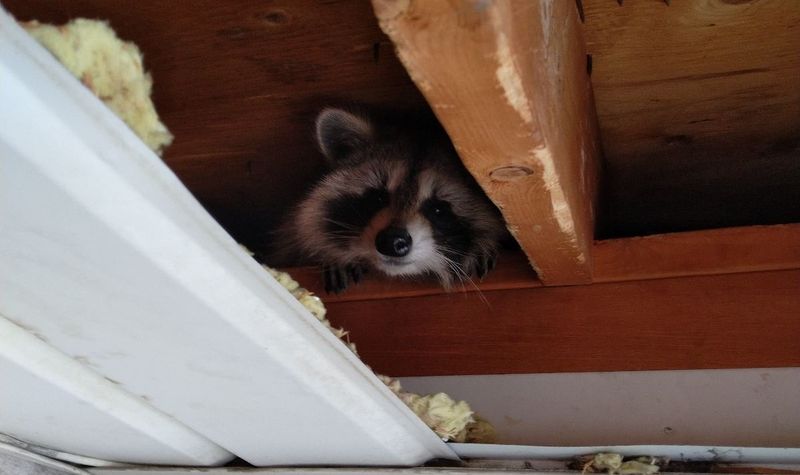
Raccoons are naturally nocturnal, meaning they are most active during the night while their human owners are trying to sleep. This nocturnal lifestyle can lead to disrupted sleep patterns and tension within the household.
Owners may find themselves frequently woken by the sounds of their raccoon exploring or playing, which can be quite loud. Adapting to a raccoon’s nighttime activity requires considerable patience and tolerance. For those who cherish their sleep, the raccoon’s natural habits can quickly become a significant and exhausting challenge.
Escape Artists
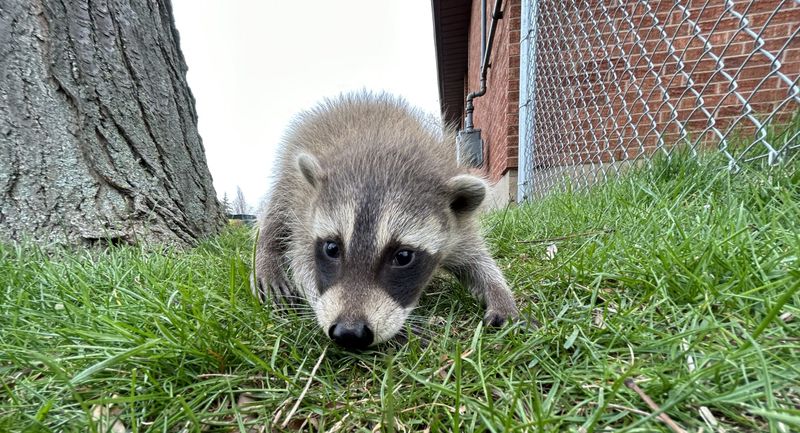
Raccoons are intelligent and resourceful, often finding ways to escape even the most secure enclosures. Their dexterous paws allow them to manipulate latches and doors, leading to frequent escapes.
This escape artistry requires owners to invest in secure housing and constant vigilance. Once a raccoon escapes, they can be difficult to recapture, posing a risk to themselves and others. This propensity to escape adds an extra layer of responsibility and stress for pet owners, requiring constant monitoring and secure containment methods.
Short Lifespan
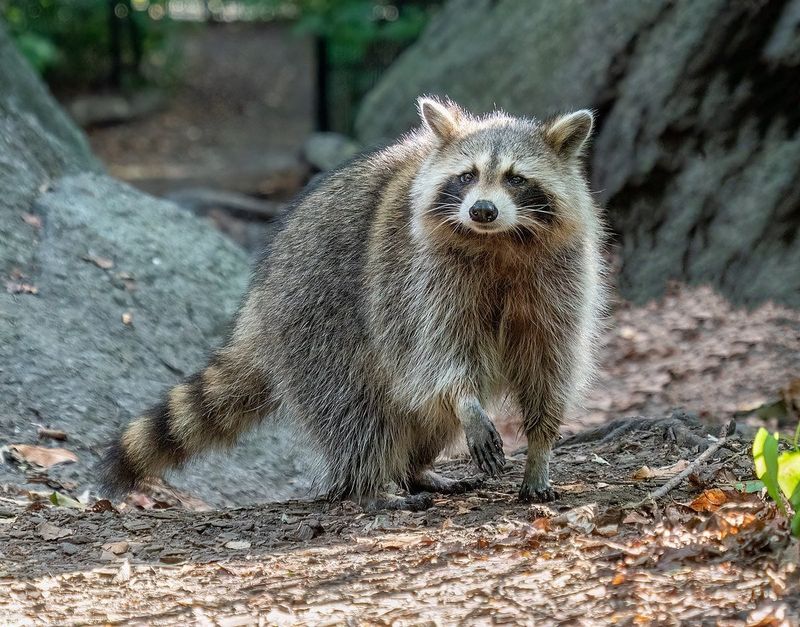
Raccoons generally have a shorter lifespan in captivity compared to more traditional pets. On average, a pet raccoon might live 2-5 years, which can be quite distressing for families who form strong attachments.
This limited lifespan is often due to health problems or the stress of domestic living, making the inevitable goodbye come much sooner than expected. For those seeking a long-term pet, the emotional toll of losing a raccoon can be significant. Families must be prepared for this reality, acknowledging the limited time they’ll have with their beloved pet.
Social Needs
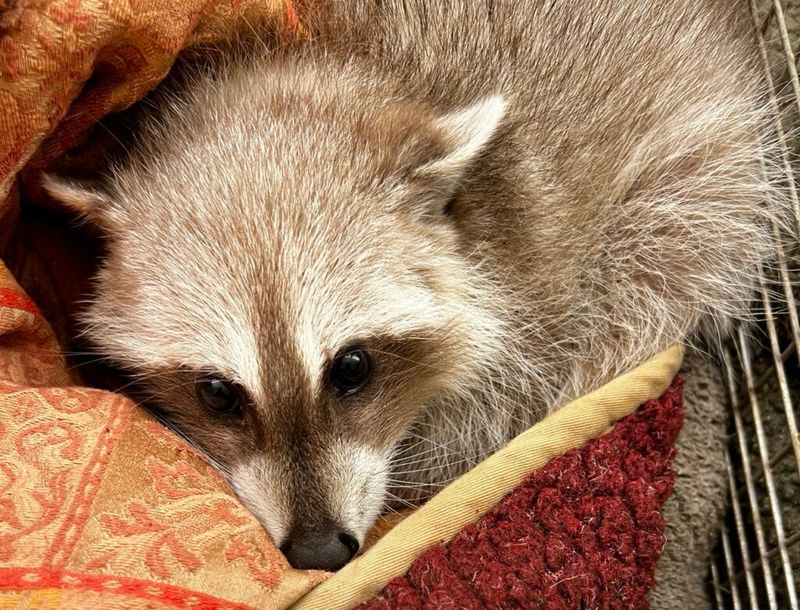
Raccoons are social creatures, thriving in groups in the wild. When kept as solitary pets, they may become lonely or bored, leading to destructive behavior and depression.
Providing social stimulation can be challenging and often requires the introduction of other raccoons or pets, which can create additional complications. Balancing their social needs with household harmony demands considerable effort and creativity from pet owners. The inability to meet these needs can lead to an unhappy and unhealthy pet, making raccoons unsuitable for those unable to invest in their complex social requirements.
Strong Odors
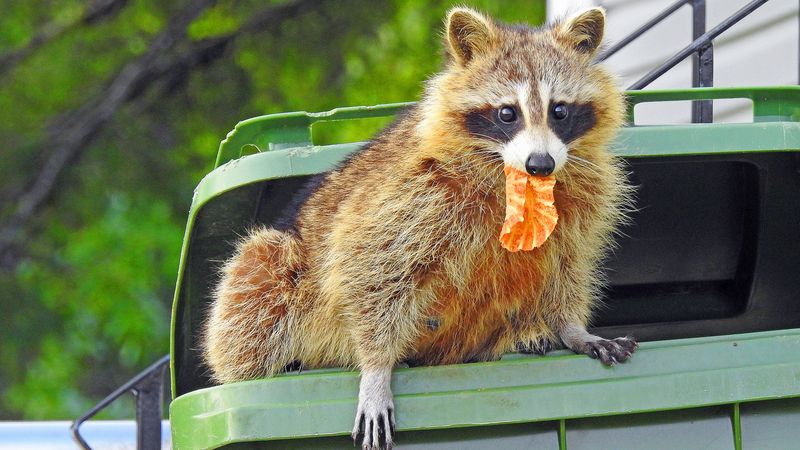
Raccoons can produce strong odors that are difficult to manage in a home environment. Their scent glands are more potent than those of common household pets, leading to unpleasant smells that can permeate living spaces.
Regular cleaning is essential to minimize these odors, but even with diligent care, the smell can persist. For those sensitive to strong scents, this can become a significant issue, affecting the overall enjoyment of their home. Managing these odors requires commitment and effort, further complicating the decision to keep a raccoon as a pet.
Expense
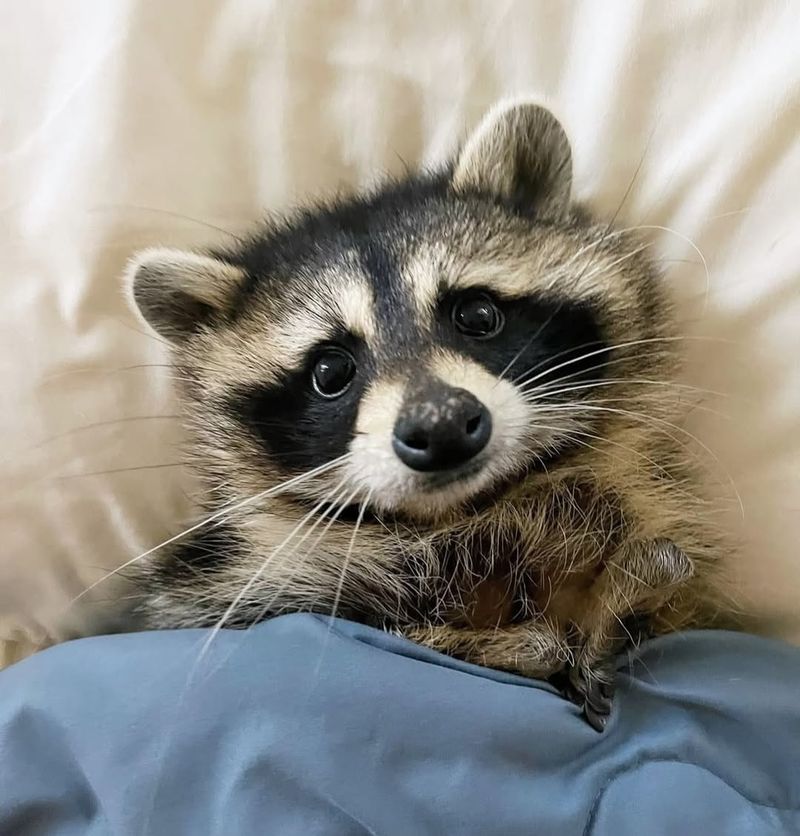
Owning a raccoon can be surprisingly expensive, with costs extending beyond initial adoption fees. These costs include specialized food, veterinary care, secure housing, and repairs from damage caused by their antics.
Unexpected expenses can quickly add up, making raccoon ownership a costly endeavor. Families should consider their budget carefully and be prepared for ongoing financial commitments. It’s essential to recognize that the desire to have a unique pet might lead to substantial and continuous financial strain, impacting the household’s overall financial well-being.
Wild Instincts
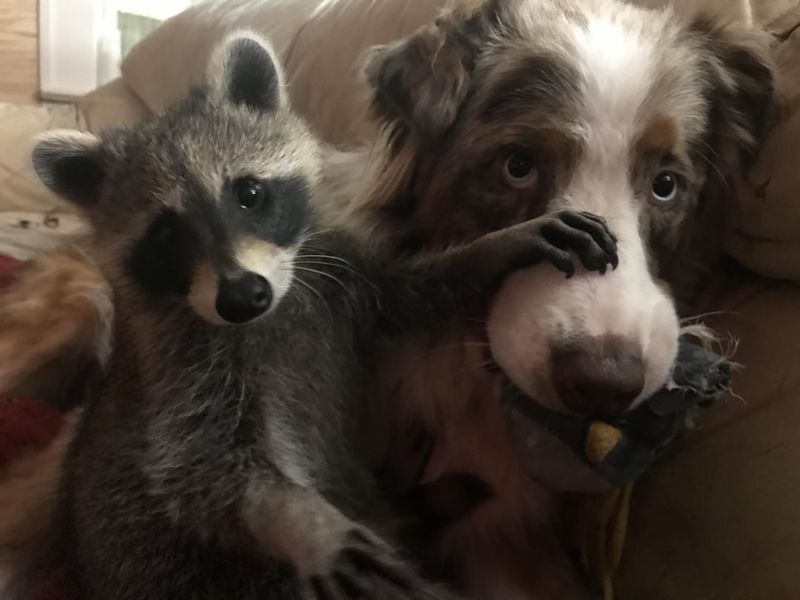
Despite domestication efforts, raccoons retain their wild instincts and behaviors. These instincts drive them to explore, forage, and sometimes cause chaos in their environment.
This natural inclination to follow their instincts can make them unpredictable and challenging to control, especially in a household setting. Understanding these wild tendencies is crucial for anyone considering a raccoon as a pet. Embracing their true nature requires patience and acceptance, but even then, it may not align with the expectations of a traditional pet, leaving many owners unprepared for the reality of raccoon ownership.

